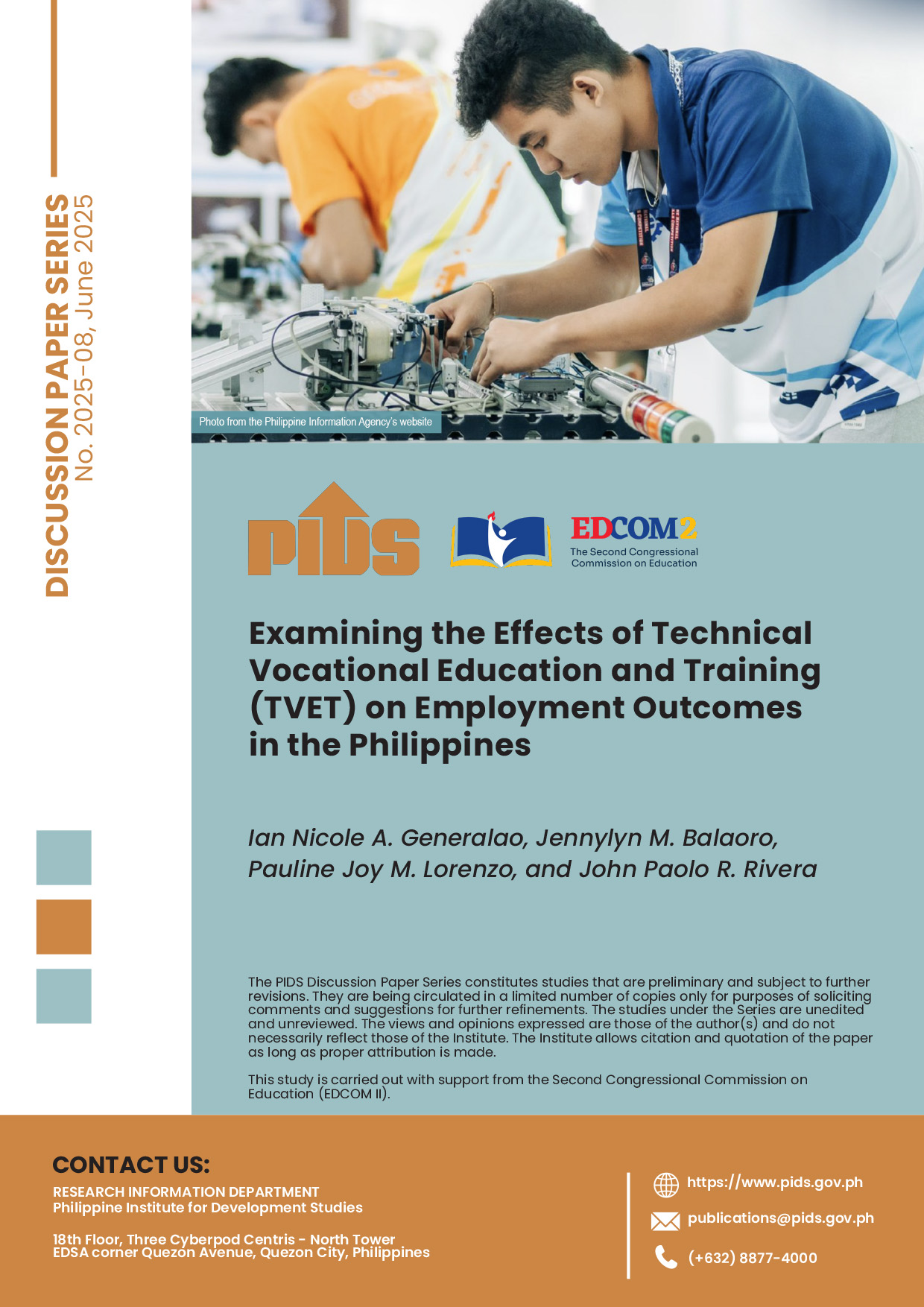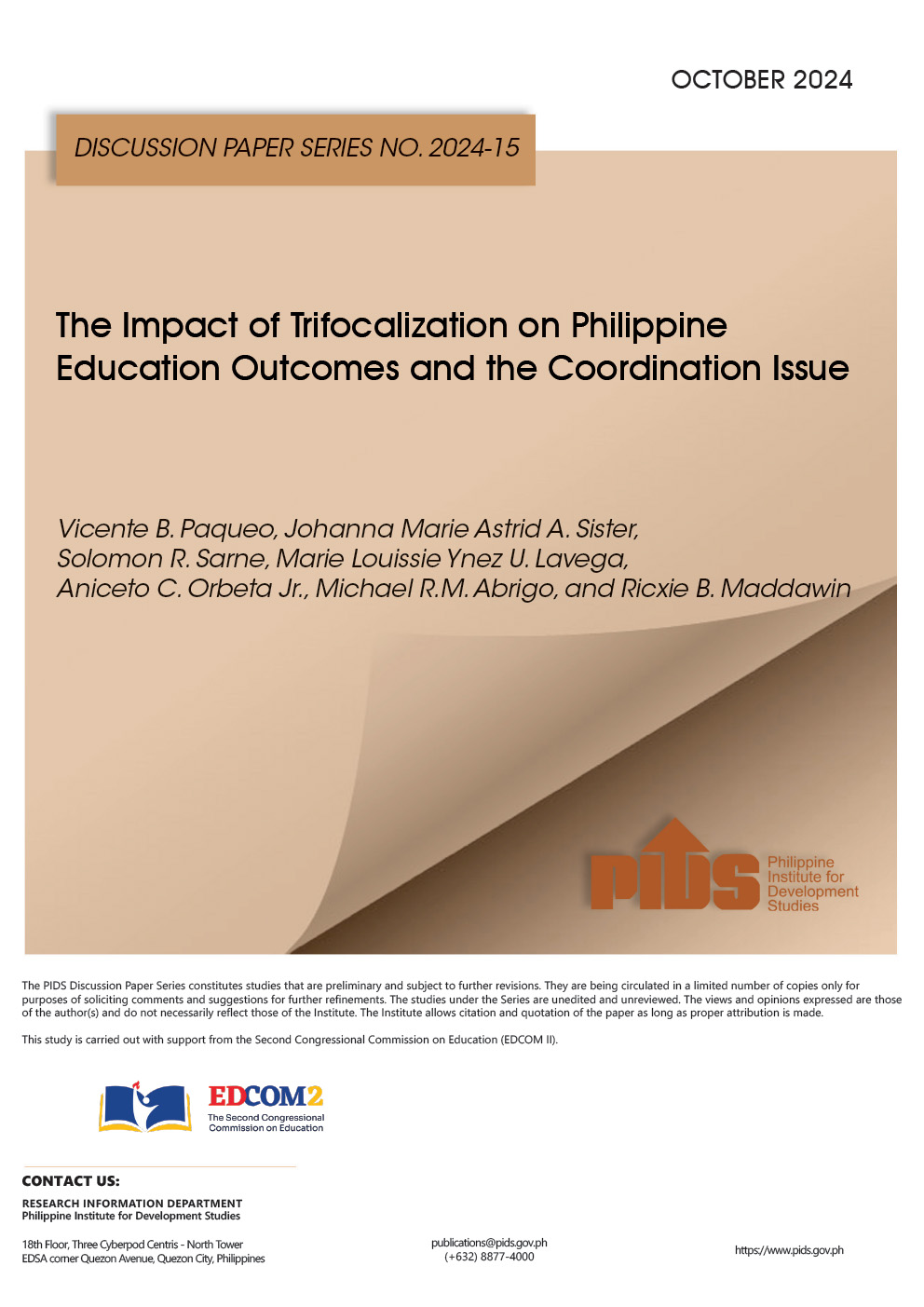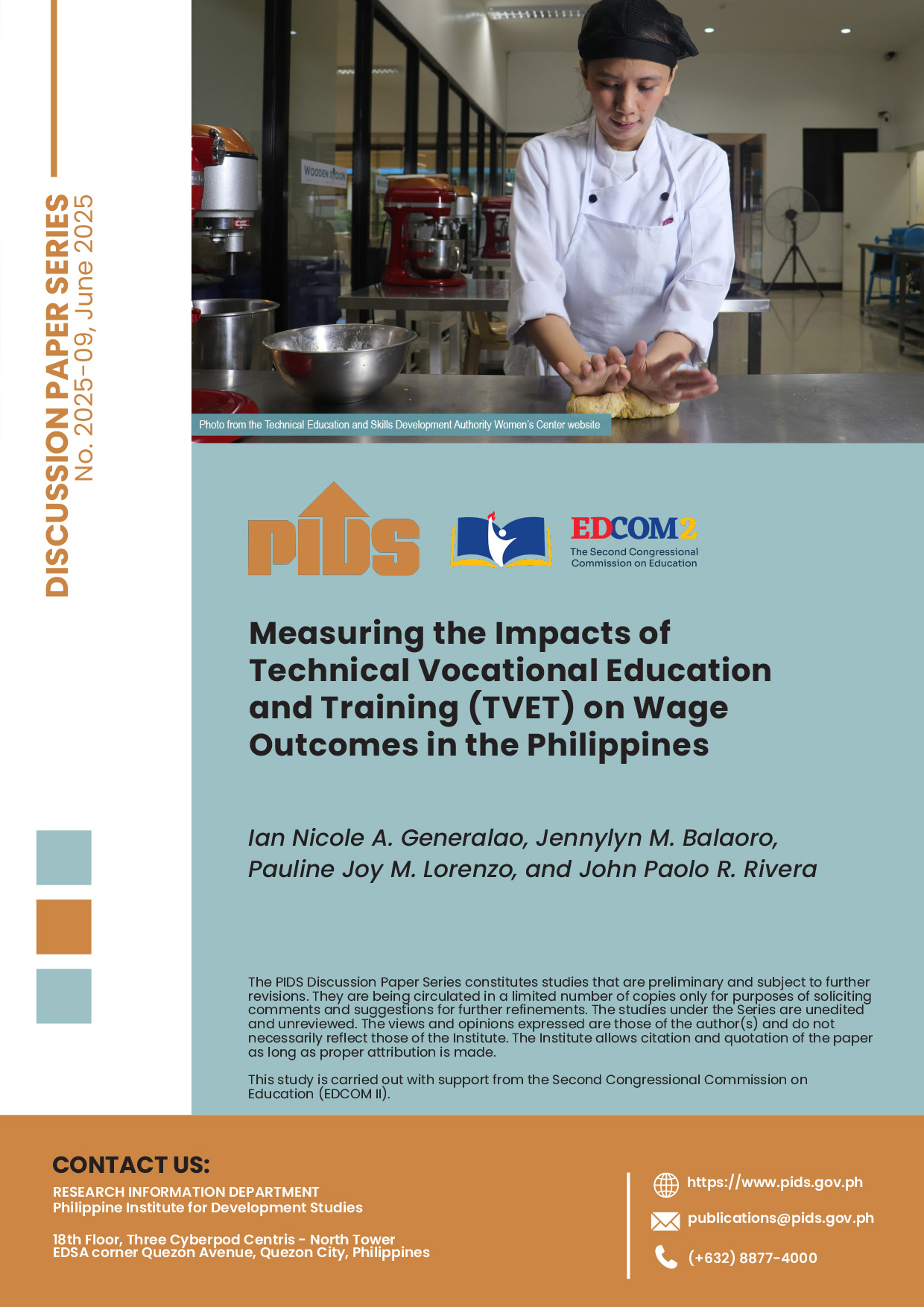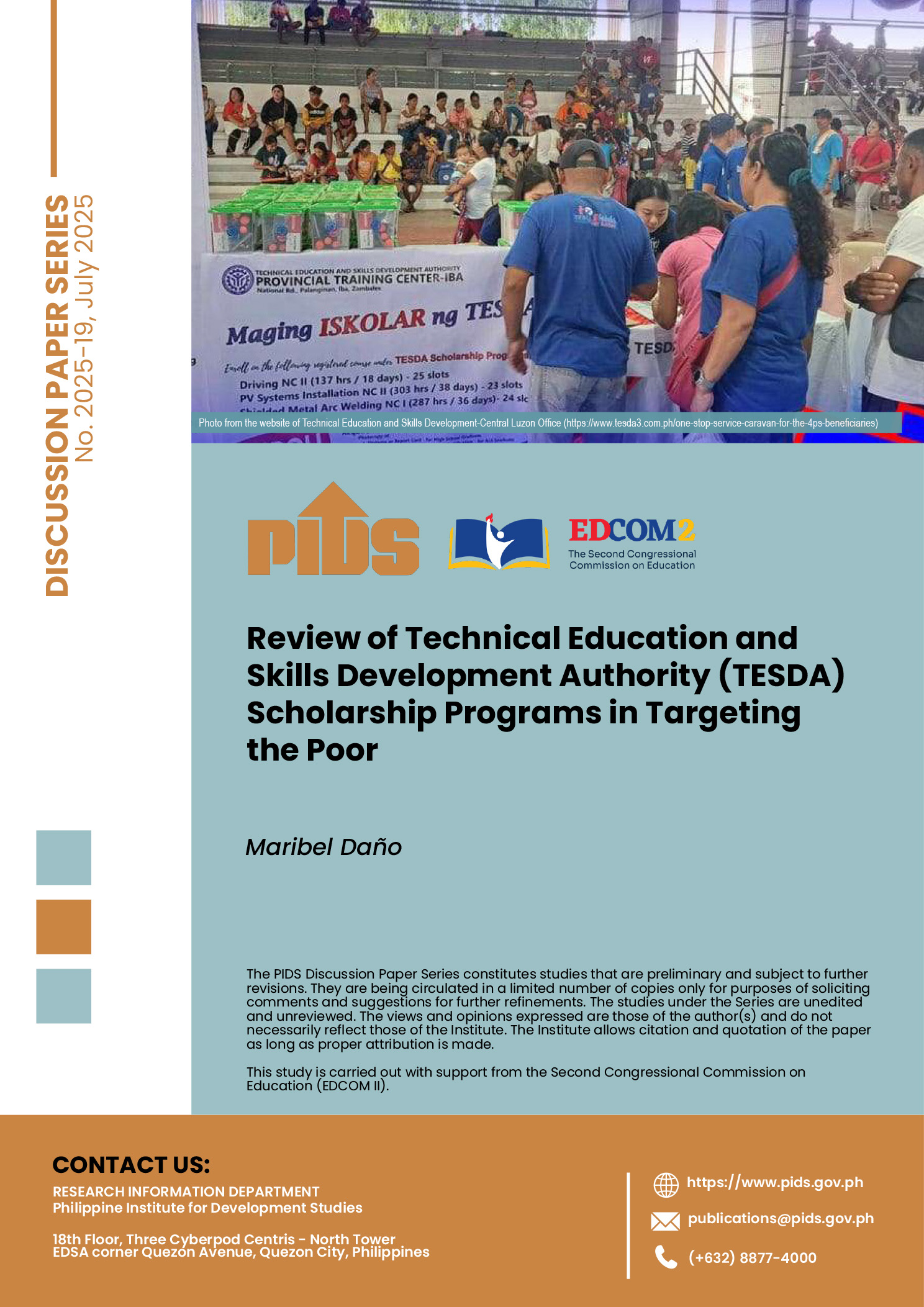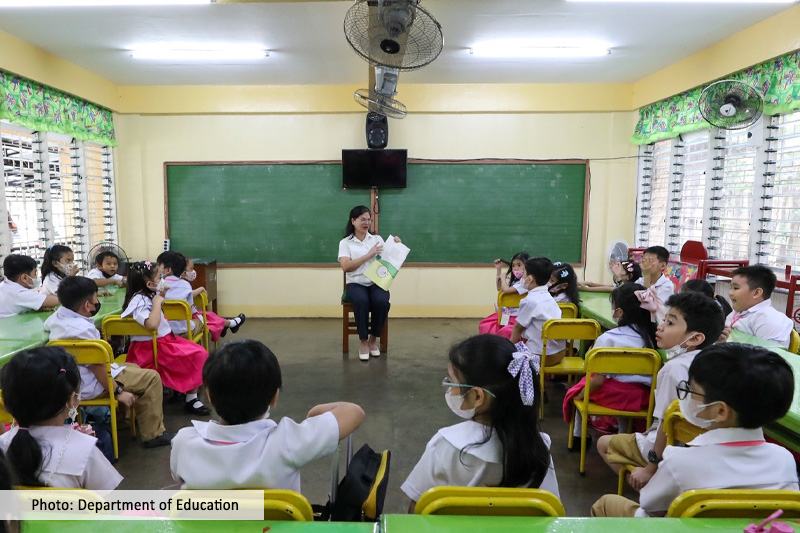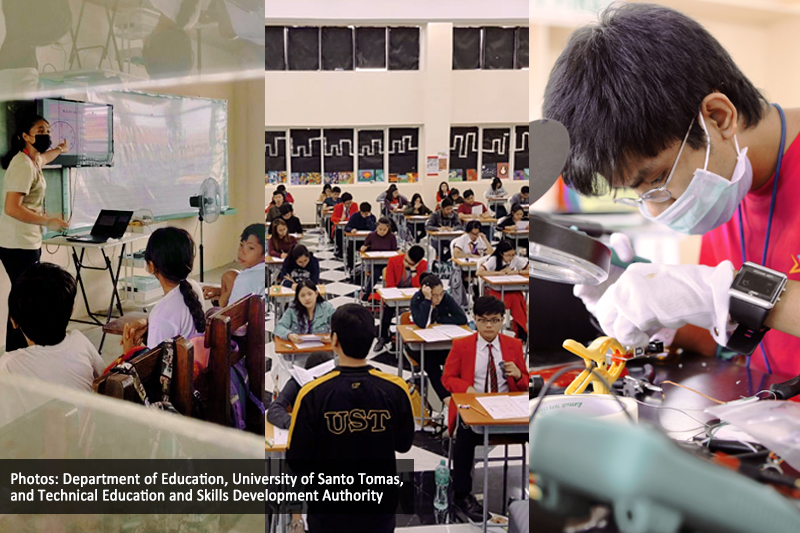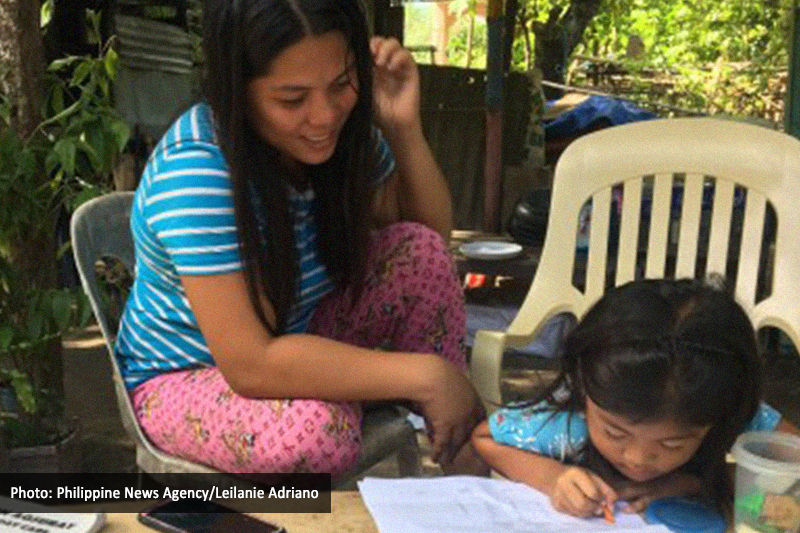Human capital theory suggests that accumulating skills through training leads to higher productivity and better employment outcomes. However, empirical evidence, including data from the Philippines, shows mixed and limited results regarding the impact of technical and vocational education and training (TVET). Using labor force and graduate tracer surveys, this study examined whether pursuing TVET improves labor force participation (LFP), employment, and job quality, while considering variations across education levels and program characteristics by applying probabilistic regression and treatment effects estimations. Additionally, interviews with employers from priority sectors were conducted to gain insights into their views on the employability of TVET graduates. The study found that completing a TVET program increases the likelihood of being economically active and seeking work, but there was no strong evidence that it improves the chances of obtaining employment or quality jobs. The employment effects of TVET vary by education level, benefiting only those with at least a secondary education. These effects were strongest among secondary education graduates and decreased with higher levels of education. TVET did not improve the employment outcomes of those with less than a secondary education. Additionally, employment outcomes varied across training modalities, but not by program registration, certification, or scholarship status. Based on key informant interviews (KIIs) and a desk review, these findings can be attributed to supply-side, demand-side, and systemic factors such as a mismatch between program offerings and industry standards, potential bias against TVET graduates, lack of recognition for certifications, and limited private sector involvement in training provision, development, certification, and assessment. The study concludes by offering policy recommendations to improve TVET's impact on employability and employment outcomes, along with suggestions for further research.
Comments on this paper are welcome within 60 days from the date of posting. Email publications@pids.gov.ph.

